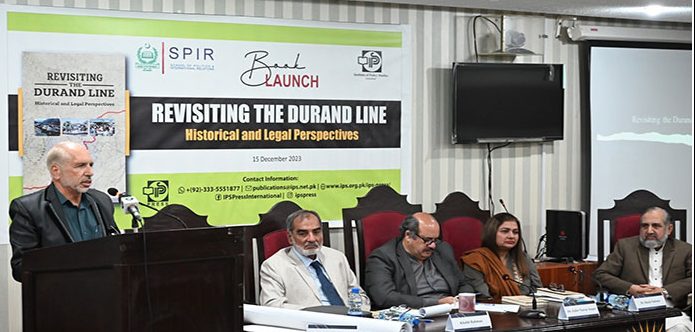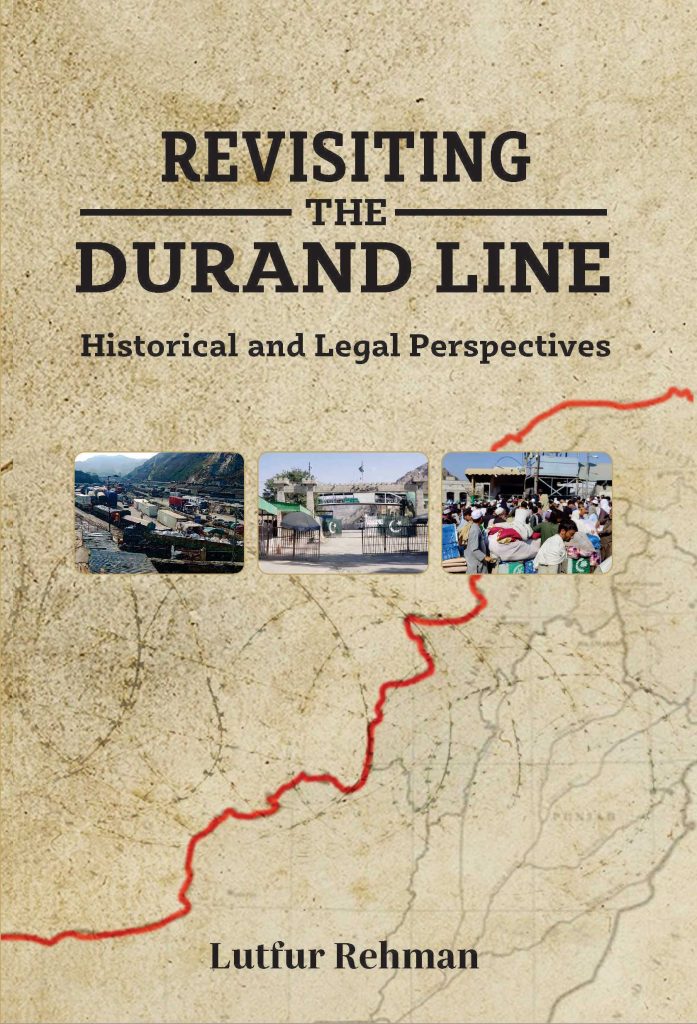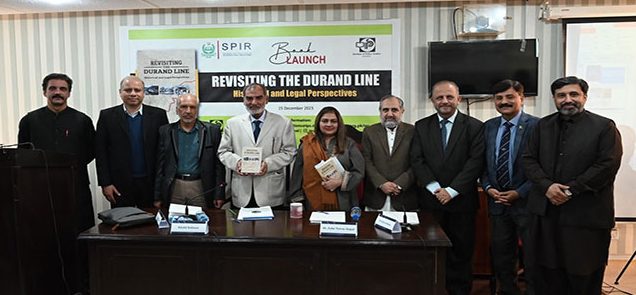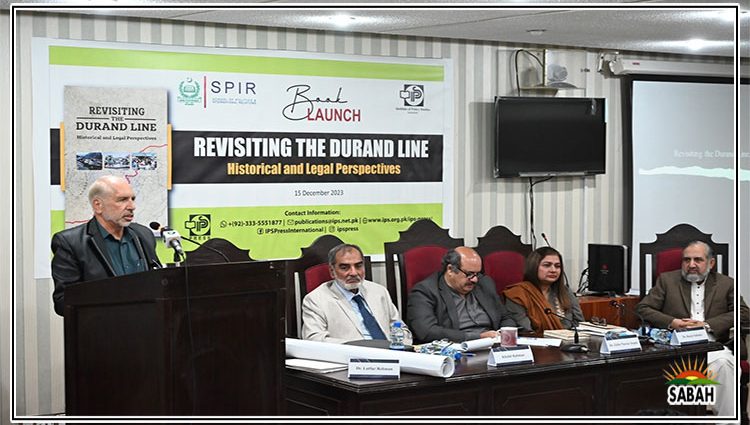
Mould-breaking book refutes Afghan narrative on Durand Line through historical evidence, international law
Event was co-organized by the Institute of Policy Studies & the SPIR, Quaid-i-Azam University, Islamabad
Speakers say the book dispels the misconceptions through evidence-based research & citing international laws and principles
ISLAMABAD ( Web News )
The Durand Line Agreement, international law, historical evidence, and the original maps exchanged at the time of the accord establish the present status of the Durand Line as an international border. As such, the Durand Line issue is political and geostrategic, and its status as an internationally recognized border is indisputable.
This was observed during the book launch of ‘Revisiting the Durand Line: Historical and Legal Perspectives’, authored by historian and researcher Dr. Lutfur Rehman. The event was co-organized by the Institute of Policy Studies (IPS) and the School of Politics and International Relations (SPIR), Quaid-i-Azam University (QAU), Islamabad.

The session was addressed by Khalid Rahman, Chairman, IPS, Ambassador (retd) Abrar Hussain, former ambassador to Afghanistan and vice chairman, IPS, Dr. Zafar Nawaz Jaspal, director and professor SPIR, QAU, Dr Razia Sultana, member Public Service Commission, Khyber Pakhtunkhwa, and Dr. Lutfur Rehman, while Faheemullah Khan, lecturer, SPIR, acted as moderator.
The speakers said the book dispels the misconceptions through evidence-based research and citing international laws and principles. As further evidence, it also contains all the original maps exchanged in Kabul in November 1893 following the border agreement between the ruler of Afghanistan Ameer Abdur Rahman Khan and British Indian official Mortimer Durand.
Dr. Lutfur Rehman debunked misconceptions about the Durand Line Agreement by centering his account on evidence and international law. Regarding one of the major misconceptions that the agreement was meant for one century and expired in 1993, he stated that it has no sunset clause. Rather the Article 2 of the agreement clearly suggests that the agreement settles the matter of demarcation once for all.
Even the notion that Ameer Abdur Rahman signed the treaty under duress is defied by historical records. The author clarified that the ameer had himself requested the British government to demarcate the border and directly took part in concluding the agreement as he felt threatened by the continuous expansion of the British and Russian empires. The border of Afghanistan was clearly demarcated through meticulous ground surveys, mutually discussed agreements, and maps, in which several areas of British India were granted to Afghanistan as a goodwill gesture by the colonial rulers.

Dr. Zafar Jaspal said that the Durand Line issue has been misinterpreted repeatedly, and such misconstrued claims should be resolved for good neighborly relations.
The whole dilemma is political and geostrategic where the persistent irritancies and rivalry have proven no good to any state, said Dr Razia Sultana. She further stated that the Durand Line is not a valid historical problem but rather an issue of division of an ethnic group, i.e. Pakhtoons. This is not a strong point as Pakhtoons are very much integrated into Pakistan’s political, economic, and military life.
Ambassador Abrar Hussain said that successive Afghan governments have developed the rhetoric on Durand line for political gains but have never taken it to an international forum. This is because of the lack of evidence behind their narrative. Pakistan does not bring up the matter in the interest of mutual relations and because it considers the Durand Line an international boundary and a settled issue.
Khalid Rahman emphasized that resolving bilateral issues benefits Pakistan, Afghanistan, and their respective populations. He further said this border controversy suits external and internal actors who do not want Pak-Afghan relations to flourish. He pinpointed the prevalence of misinformation as a significant hurdle, hampering genuine research efforts. Rahman stressed the critical need to shift focus towards indigenous perspectives, urging scholars and academia to collaborate closely with research organizations to enhance the quality and authenticity of research endeavors.

